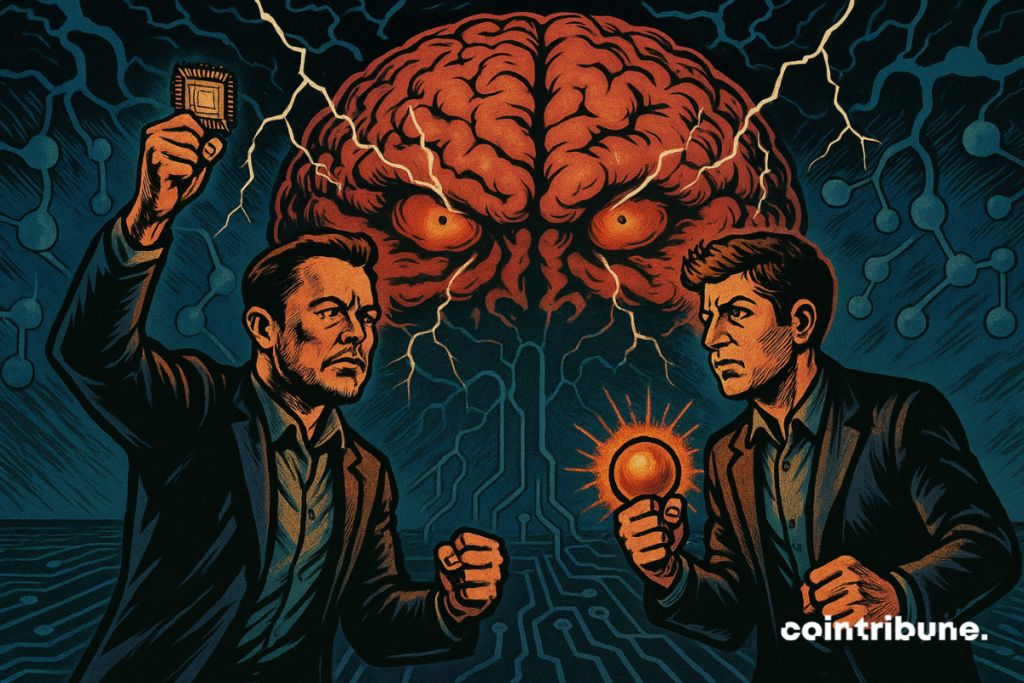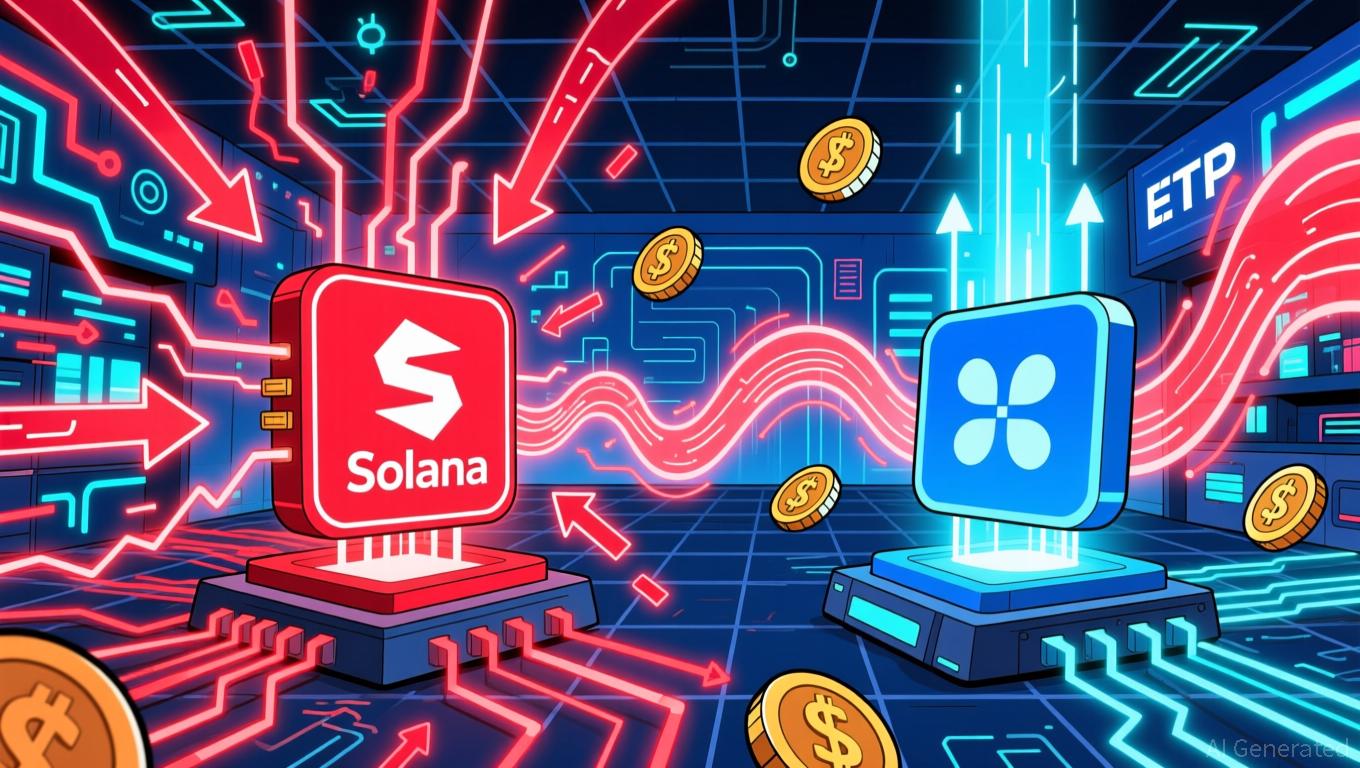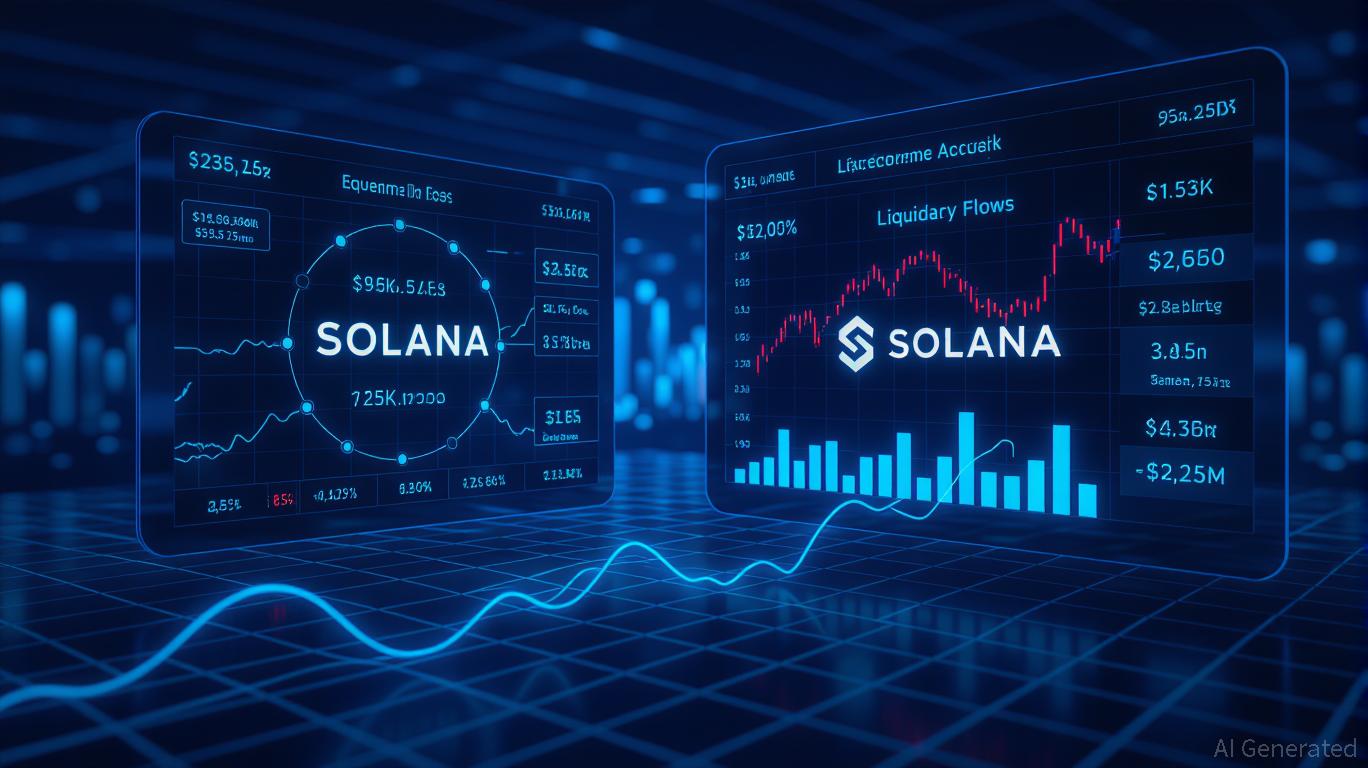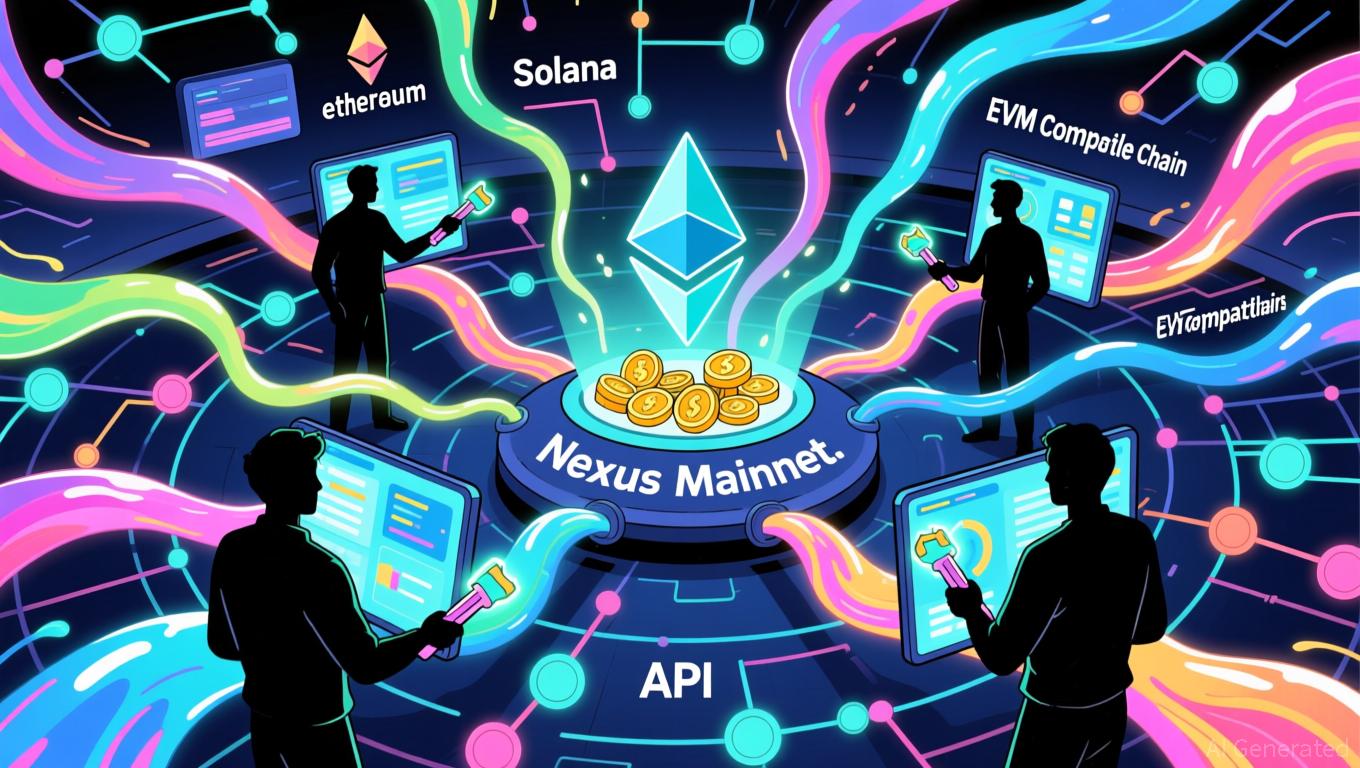The Brain, New Battleground for Tech Titans
After the Moon, space, the Internet, nanotechnologies, quantum computing, cryptos and artificial intelligence, one question arises: what is left to discover for Man? Myriads of things, of course. But there is one that fascinates as much as it frightens: the brain. At a time when Elon Musk and Sam Altman are injecting millions into neural interfaces, the boundary between human and machine becomes more porous. And in this race to fusion, the stakes go far beyond science fiction.

In brief
- Elon Musk is already implanting brain chips with Neuralink to merge AI and human thought.
- Sam Altman supports Merge Labs, betting on a softer, non-invasive neural interface.
- UCLA develops an AI co-pilot for EEG headsets, making robotic assistance more efficient.
- Experts warn of possible abuses if a few giants control access to our thoughts.
When AI meets neurons: the obsession of the pioneers
Neuralink, Merge Labs, Kernel… so many names that sound like the new temples of tech, with a common goal: to connect the human brain to the machine. Elon Musk does not hide it. Since 2016, he has aimed for a symbiosis between human and Artificial Intelligence to “preserve civilization.” Five patients have already received Neuralink implants, and one of them, Noland Arbaugh, now controls his computer with his thoughts.
His latest feat? A Mario Kart gaming session, completely by thought.
For Sam Altman, co-founder of OpenAI, it is with Merge Labs that he enters the fray. Less invasive, “softer” than Neuralink, his approach flirts with the idea of cerebral cohabitation between man and AI without heavy implants. Behind these projects lies the same idea: controlling the next interaction platform.
If one company owns the infrastructure, code, and data, they own the keys to an individual’s thoughts and intentions. This discourages transparency [and] slows independent validation and scientific progress. Access to BCI technology—and cognitive autonomy—is subject to the business decisions of a handful of high-profile figures. That is too much risk in too few hands.
Andreas Melhede, Elata Bioscience – Source: Decrypt
This race to connected AI is not trivial. For these titans, owning the brain-machine interface means owning the future. A power struggle with dystopian overtones, or a revolution, depending on the boundary one draws.
From implants to soft tech: a diversity of approaches
While Neuralink type implants make headlines, other visions are emerging, less invasive but equally promising. Researchers at UCLA, for example, have developed an AI assistant, a “co-pilot” , to improve the performance of non-invasive EEG headsets. Result? A paralyzed patient was able to manipulate a robotic arm, a task previously impossible without assistance.
The same story at Kernel, funded by Bryan Johnson, which aims to build the cognitive infrastructure of the future, rather than spectacular gadgets. The goal is clear: capture mental signals, analyze them en masse, and derive predictive models at the intersection of AI and neuroscience.
But not everyone shares the unbridled enthusiasm of billionaires. Tetiana Aleksandrova, founder of Subsense, reminds that:
Their funding can accelerate progress at a pace public funding rarely allows. At the same time, the pressure to deliver at startup speed can lead to unrealistic promises that put trust at risk. And in science, trust is just as critical as capital.
Tetiana Aleksandrova – Source: Decrypt
Between technological ambition and clinical reality, tension rises. Brain tech is no longer science fiction, but the field remains mine-filled.
The numbers behind the brain conquest
In this race, the numbers and facts are as spectacular as the ambitions. Here is an overview:
Points to keep in mind:
- Elon Musk’s Neuralink has raised 650 million dollars in series E;
- Patient Noland Arbaugh broke the world record for BCI control with 8.0 BPS;
- Merge Labs, supported by Sam Altman, targets a valuation of 850 million dollars;
- The non-invasive AI interface developed at UCLA allowed a patient to manipulate a robotic arm in 6 minutes.
These advances raise major questions. Who will have the right to read (or control) our thoughts? What place for ethics in this new intimate tech? Competition among AI giants is already shaping the rules of the game, well before the technology is available to the general public.
And yet, despite technical limits — still fuzzy signals, biological risks — the direction seems inevitable: tech is creeping into the brain, and AI is settling into our synaptic connections.
As tech titans fight over the cables of our brains, the crypto world is not left out. In the DeSci (decentralized science) universe, projects are emerging to transform scientific research with more transparency, collaboration, and fairness. What if the next cognitive revolution came not from giants, but from outsiders?
Disclaimer: The content of this article solely reflects the author's opinion and does not represent the platform in any capacity. This article is not intended to serve as a reference for making investment decisions.
You may also like
Ethereum News Update: Amundi’s Integrated Approach Connects Blockchain with Conventional Financial Regulations
- Amundi, Europe's largest asset manager, launched its first Ethereum-based tokenized money-market fund, enabling 24/7 settlements and transparent record-keeping via blockchain. - The hybrid model, developed with CACEIS, combines traditional fund operations with blockchain-based ownership, preserving regulatory compliance while expanding investor access. - Ethereum's dominance in stablecoin and RWA transfers ($105.94B in 30 days) underscores its role in accelerating tokenization, with Amundi positioning it

XRP News Today: XRP ETFs Drive Price Increases, While Solana ETFs Ease Selling Pressure
- XRP ETFs raised $587M in inflows since late November, outpacing Solana's $568M as investors favor altcoins with regulatory clarity and utility. - Bitwise XRP ETF's $107M debut and zero-fee strategy drove momentum, while Solana ETFs faced $156M weekly outflows due to network reliability concerns. - XRP's inflows acted as a "battering ram" pushing prices above $2.27, contrasting Solana's ETFs which merely dampened sell pressure without reversing its decline. - Analysts predict XRP could reach $3 by Decembe

The Federal Reserve's Change in Policy and Its Impact on Alternative Cryptocurrencies Such as Solana
- Fed's 2025 policy shifts, including rate cuts and stablecoin regulations, are reshaping altcoin markets by altering liquidity and risk appetite. - Solana's Alpenglow upgrade (150ms finality, 1M TPS) addresses scalability issues, aligning with Fed's AI-driven infrastructure focus despite network reliability concerns. - Institutional inflows into Solana ETFs ($100M AUM) contrast with retail caution (78% HODLers in red), highlighting divergent risk perceptions amid 30% price corrections. - Divergent ETF flo

Avail's Intent-Driven Nexus Addresses the Issue of Fragmented Liquidity Across Chains
- Avail launches Nexus Mainnet, a cross-chain solution unifying liquidity across Ethereum , Solana , and EVM networks. - The intent-solver model enables seamless asset transfers without technical complexities, streamlining user experiences. - Developers gain modular tools for multichain integration, reducing costs as cross-chain liquidity demand grows. - Nexus abstracts execution layers, offering unified balances and execution while addressing fragmentation challenges. - With $50B+ in cross-chain activity

